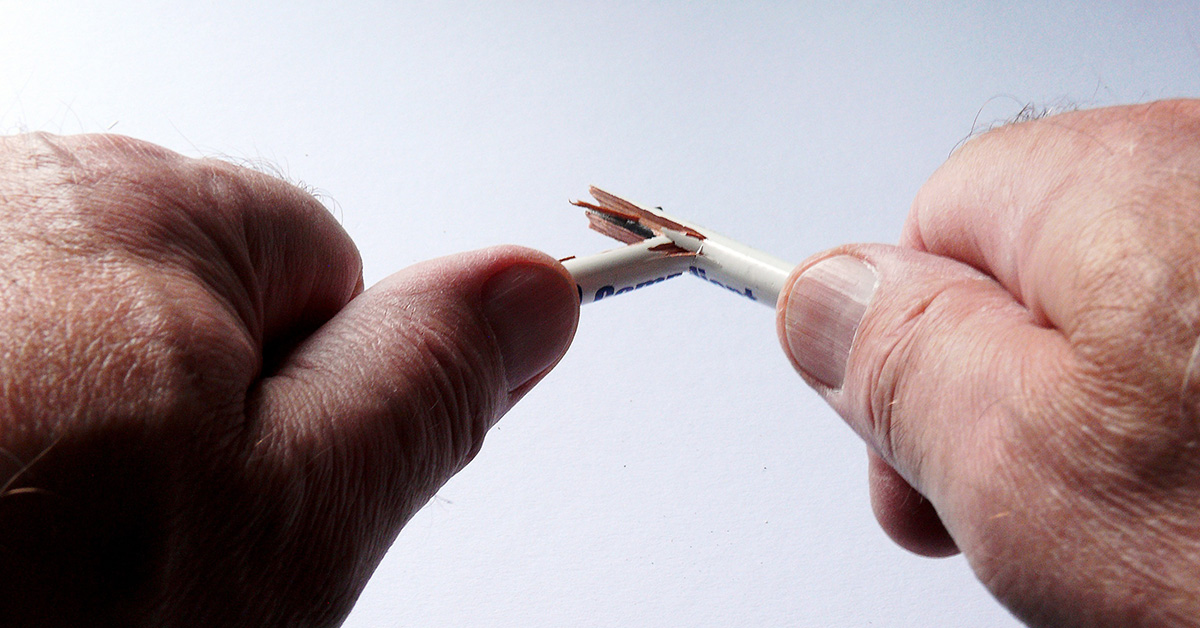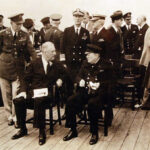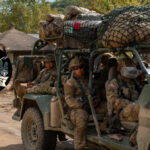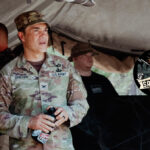
- (ON%20WRITING)\%22>&url=https%3A%2F%2Fwarroom.armywarcollege.edu%2Fspecial-series%2Fon-writing%2Fwow-moments-in-writing%2F&hashtags=WAR_ROOM" title="Share on Twitter" onclick="essb.window('https://x.com/intent/post?text=(ON%20WRITING)\%22>(ON%20WRITING)\%22>&url=https%3A%2F%2Fwarroom.armywarcollege.edu%2Fspecial-series%2Fon-writing%2Fwow-moments-in-writing%2F&hashtags=WAR_ROOM','twitter','512219883'); return false;" target="_blank" rel="noreferrer noopener nofollow" class="nolightbox essb-s-bg-twitter essb-s-bgh-twitter essb-s-c-light essb-s-hover-effect essb-s-bg-network essb-s-bgh-network" >
Ah, writing … that elusive skill. For all the advice and helpful books on the market, there is little substitute for developing the skill through practice and experience. But not everyone has the time, and even experienced writers can struggle to find the right words.
In this episode of A BETTER PEACE, Jennifer Keene and Michael Neiberg discuss various tips on writing, especially history and other scholarship. How does one craft a good thesis? Or deliver a great hook in the introduction? Or develop those ‘wow’ moments that leave a lasting impression on the reader?
If you don’t end your essay with the ‘so what’ answered, you haven’t done your job
Podcast: Download
Subscribe: Apple Podcasts | Spotify | Amazon Music | Android | Pandora | iHeartRadio | Blubrry | Podchaser | Podcast Index | TuneIn | Deezer | Youtube Music | RSS | Subscribe to A Better Peace: The War Room Podcast
Jennifer Keene is Dean of Wilkinson College of Arts, Humanities, and Social Sciences and a specialist in American military experience during World War I. Michael Neiberg is the Chair of War Studies at the U.S. Army War College. The views expressed in this presentation are those of the speakers and do not necessarily reflect those of the U.S. Army War College, U.S. Army, or Department of Defense.
Photo Credit: Pxhere.com under creative commons license.
Other releases in the “On Writing” series:
- COLONELS WRITING FOR COLONELS (RE-RELEASE)
- ON WRITING: MILITARY AUTHORS AND THE HARDING PROJECT (RE-RELEASE)
- FIGHTING TOGETHER: THE CANADIAN-AMERICAN PARTNERSHIP IN WORLD WAR II
(ON WRITING) - THE SCHOLAR AND THE STRATEGIST:
SIR HEW STRACHAN
(ON WRITING) - COLONELS WRITING FOR COLONELS
- ON WRITING: MILITARY AUTHORS AND THE HARDING PROJECT
- UNDERSTANDING RUSSIAN CULTURE: JADE McGLYNN
(ON WRITING) - CHINA’S SHIFTING HISTORY: STEPHEN PLATT
(ON WRITING) - UNDERSTANDING CHINA THROUGH ITS RECRAFTED PAST: RANA MITTER
(ON WRITING) - WRITING ON A DEADLINE: SHASHANK JOSHI
(ON WRITING)
- (ON%20WRITING)\%22>&url=https%3A%2F%2Fwarroom.armywarcollege.edu%2Fspecial-series%2Fon-writing%2Fwow-moments-in-writing%2F&hashtags=WAR_ROOM" title="Share on Twitter" onclick="essb.window('https://x.com/intent/post?text=(ON%20WRITING)\%22>(ON%20WRITING)\%22>&url=https%3A%2F%2Fwarroom.armywarcollege.edu%2Fspecial-series%2Fon-writing%2Fwow-moments-in-writing%2F&hashtags=WAR_ROOM','twitter','735651053'); return false;" target="_blank" rel="noreferrer noopener nofollow" class="nolightbox essb-s-bg-twitter essb-s-bgh-twitter essb-s-c-light essb-s-hover-effect essb-s-bg-network essb-s-bgh-network" >





As one with a proud heritage of military service, with had a grandfather and uncle who served in WWII, a father who was in Korea and Vietnam twice, my one tour in Vietnam, two younger brothers and a sister who served for a few years, and a nephew who served in Iraq and Afghanistan we were all told since childhood that service to your country was the most important principle to understand and by faithful to. It didn’t matter if you only served for a little while, the important thing was to answer your country’s call.
It might seem mysterious to some (especially with no draft) and something that many pooh-pooh today, but maybe that is part of what’s wrong today, too.